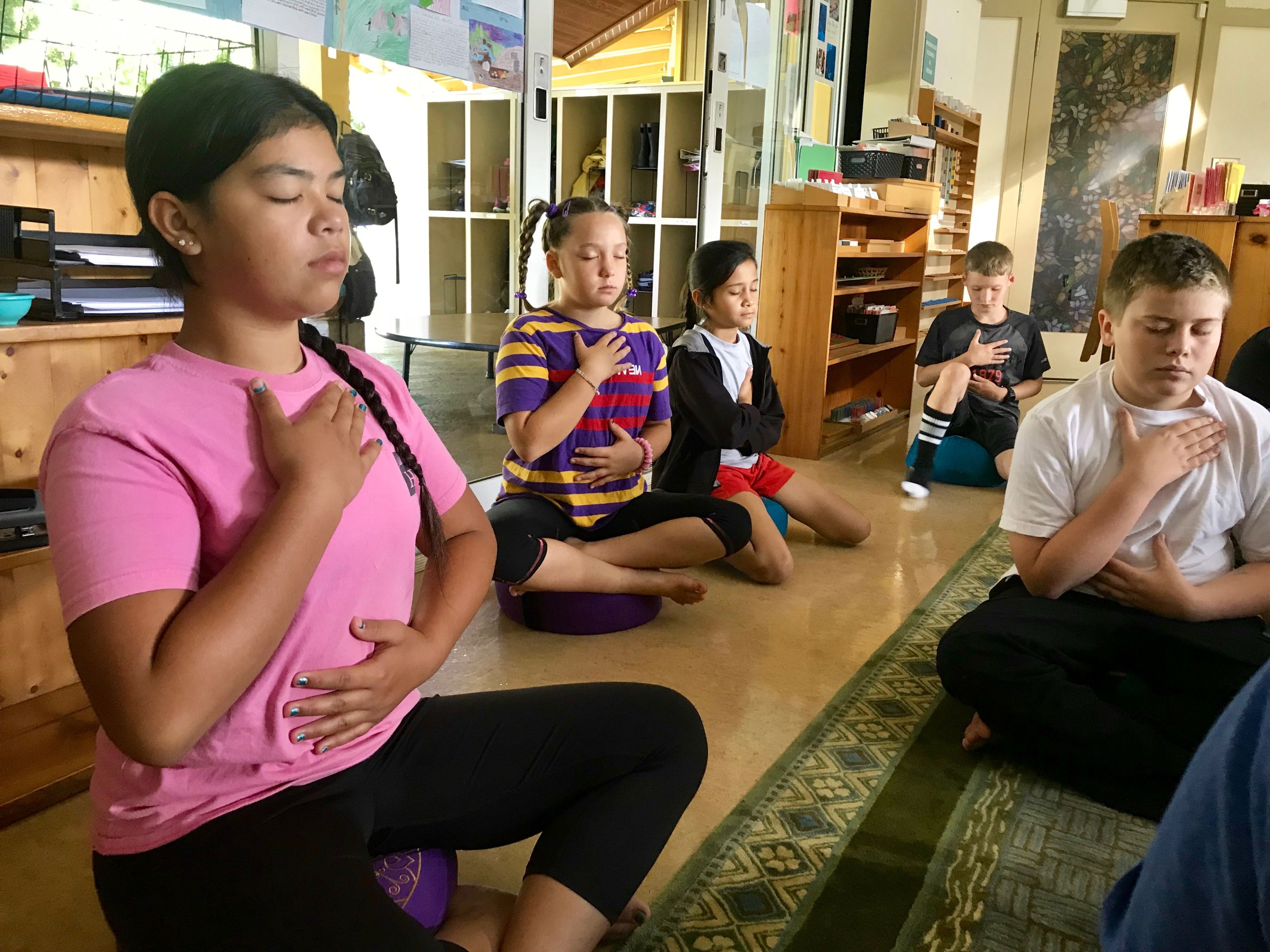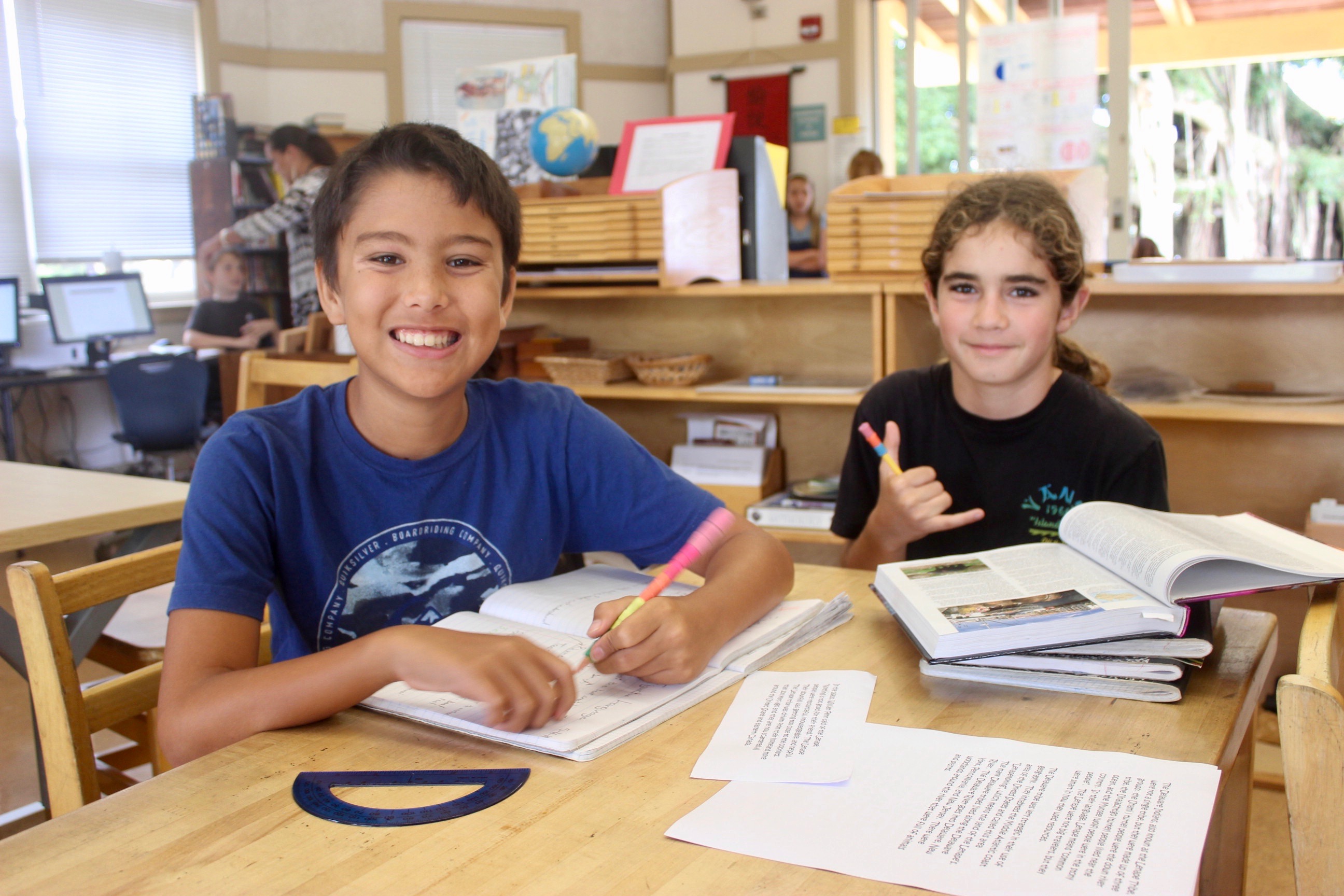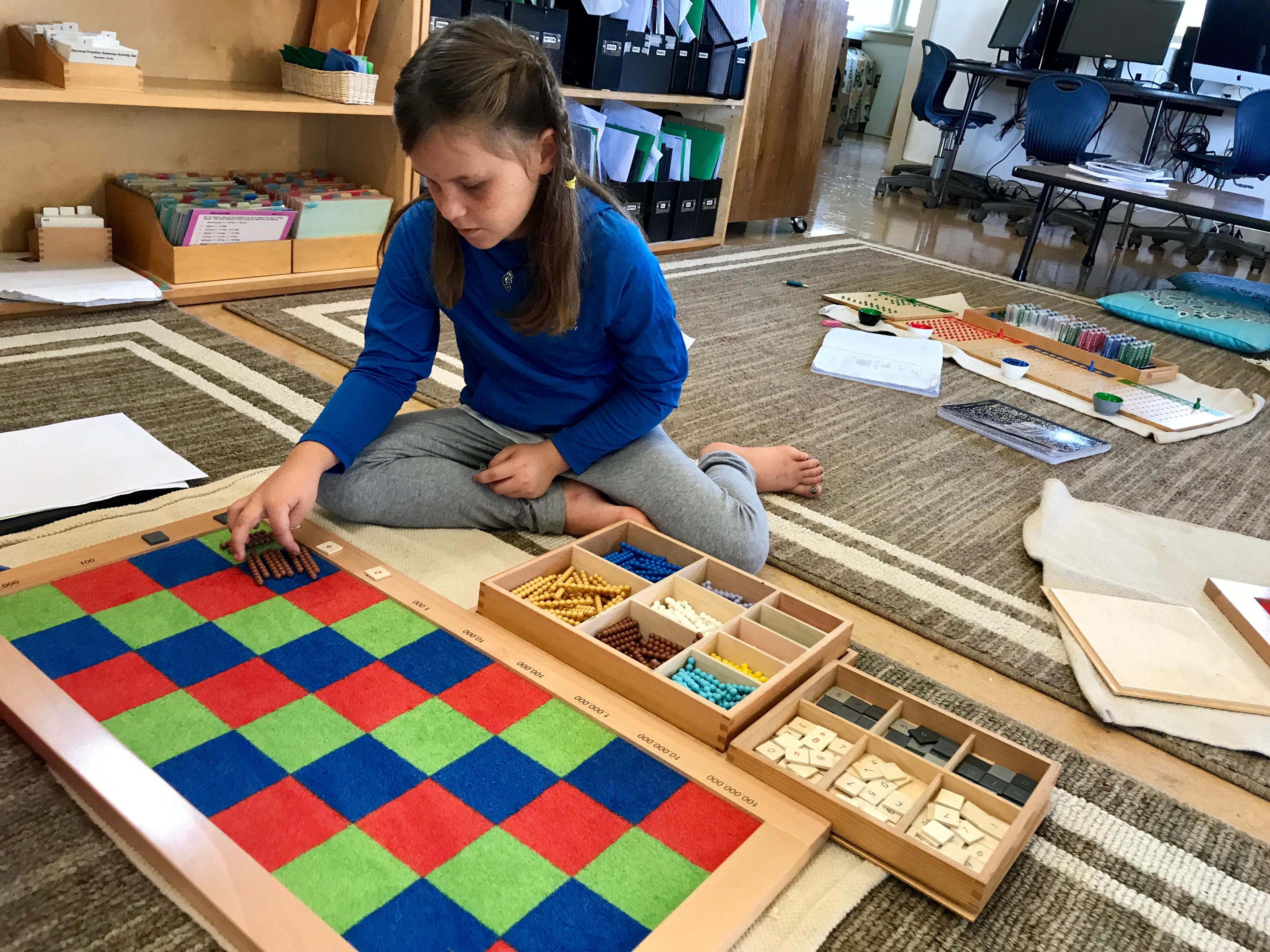Upper Elementary Program
Upper Elementary Program – (Ages 9 years through 12 years, Grades 4 through 6)
The Upper Elementary is a special learning environment and community, based on the guiding principles of Maria Montessori. Following her pedagogy and our school’s mission, the adults work as guides to help students prepare for life. The teachers strive to deliver a comprehensive curriculum through a team-based model that supports the teacher’s growth within particular curricular areas and the students’ need for both movement throughout all spaces and in depth instruction and practice within the disciplines of language, mathematics, culture, and the sciences. We have seen and believe that this is the best model for helping students’ develop confidence and self-esteem while exercising their self-motivation and self-direction.
Three connected environments are beautiful and open, filled with resources to feed the minds, bodies and spirits of all students. Three Montessori credentialed teachers and two teaching assistants work within the spaces. Much work is done to create community within the spaces among staff and students alike. Separated merely for communication purposes between the teacher, student, and parent, students are divided into multi-age homerooms to 1) facilitate the partnership between school and home, 2) to more easily deliver appropriate and necessary support during work time and instruction, 3) encourage more intimate community building outside the larger upper elementary community. Respect for one another is essential. A great amount of time is spent facilitating discussions between students in community meetings, teaching them to speak and move respectfully, to help each other, and to solve problems in a positive manner. Students’ understanding of mutual respect is inherent in the entire community and continues to be strengthened and reinforced in academic work, group activities, community meetings and service.
The elementary program operates with the understanding that its greatest challenges are to support the children’s discovery of their place within the group and within society as a whole. Thus, much activity at the elementary level takes place in groups, with children sharing, collaborating, and passionately exploring material together.
Montessori found that at this developmental stage, children are intrinsically motivated to increase their academic rigor. They want to exhaust certain topics of their choosing and they are eager to learn everything, especially the obscure, strange or bizarre. In the upper elementary classroom, rubrics are used to outline the expectations for projects. To support the learning new skills, children are frequently required to recall information previously learned in lower elementary. They are also regularly encouraged to make cross-curricular connections by applying knowledge from one subject to another. They learn to respectfully debate and discuss topics, to share ideas and to defend their well-researched stance.



